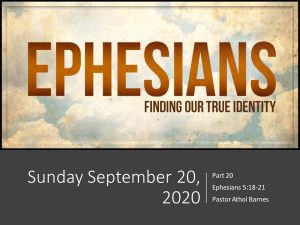
Today we recognized volunteers, the people that make everything run smoothly. As we called each volunteer forward, we asked them to put a crayon in a vase. Each one of the crayons represents a task that needs to be done in the church. It was evident that it took a lot of people to do all that needs to be done in the church.
But let’s think about the church, why do we come to church?
I think one of the failures of the church in the past fifty years is the advent of the mega church and the multiple campus church models. One of the primary motivators of the seeker friendly church is to make the church as welcoming and inviting as possible in order to get people through the doors.
Now, don’t get me wrong, we absolutely need to be welcoming and inviting. And there is nothing wrong with large numbers. But what has happened is that the church has gone from being a sending agent and become a Christian entertainment venue.
Feeding peoples wants and desires by programs, features, and entertainment. Instead of people coming to church to be equipped for the work of the ministry, people are coming to church to be entertained, and they are dictating to the leadership what they want in order to stay.
If we are honest, who has become the object of attention? It is the attendees, and if we are focusing on the attendees, who are we worshipping?
The church is not a professional organization, it is a body. We are all members of the body and as such we all serve alongside one another, for one purpose – for the glory of God.
We are saved for more than simply getting a ticket to heaven – there is so much more for us.
God delivered us so that we would have a relationship with him, through which He calls us to be a part of His mission to bring the Gospel message to the lost. What a privilege. Paul makes this clear in Ephesians 2:8-10.
We are saved in order to do good works. Now, the church is not the only place where we can do these works, but it is an essential part of serving the Lord. Every volunteer that we recognized this morning has a motivation to serve.
As I was thinking about it, there are many different reasons why people serve as a volunteer, but only one right reason.
Some people serve for recognition, others for the applause of man or to earn favor with God, and some serve out of guilt. But the true motivation to serve the Lord comes from a genuine experience of joy. When you genuinely serve the Lord out of love for the Lord and understanding the call of God on your life, you experience joy, deep seated contentment, and it is not a burden or hardship at all.
One of the keys to contentment is serving in the place of obscurity. Doing things that no one sees other than the Lord. Genuine contentment and joy is knowing that the only person who really notices is the only one who really matters.
The truth is that the church would not exist without volunteers, so how do we get people to volunteer? The normal way is to make a good promo video and beg people to sign up to serve. Failing that we could offer them free donuts and coffee!
But I propose that there is a purer motivation that comes from a move of God. We don’t need more manipulation; we need more of the power of God. As God begins to move on peoples’ hearts, they are compelled by a sense of calling and purpose. Doing what God has called them to do. In Psalm 110:3 we read, “Your people will offer themselves freely on the day of your power, in holy garments; from the womb of the morning, the dew of your youth will be yours.”
This Psalm is speaking about Jesus coming in glory and his followers offering themselves to serve him. What we need in the church is not more calls for volunteers or pleading videos, what we need is revival. Throughout the history of revivals, there has never been a shortage of workers who give themselves to the work of the Lord.
Henry Blackaby wrote, “Only the power of God can free us from our natural self-centeredness and reorient us toward the mission of God”
And finally, we have the privilege to serve the Lord because we gain an eternal reward. Revelation 19:7-8 reads, “Let us rejoice and exult and give him the glory, for the marriage of the Lamb has come, and his Bride has made herself ready; it was granted her to clothe herself with fine linen, bright and pure”— for the fine linen is the righteous deeds of the saints.”
At the marriage feast, the church, the Bride of Christ, will be clothed in fine linen, bright and pure, but the linen is made up of the righteous deeds that we do. Now we know that we are not made righteous by what we do. Rather, we work from a position of righteousness because of the blood of Jesus.
The good works that we do, are righteous deeds that have an eternal value. Christ will reward us for our faithfulness. And the rewards we receive will make up the wedding gown.
Dr. Lehman Strauss writes, “Has it ever occurred to you … that at the marriage of the Bride to the Lamb, each of us will be wearing the wedding garment of our own making?”
That is a tremendous paradigm shift; we don’t serve out of duty, we serve as an act of worship.
How is your heart? What is the response of your heart today? Is your heart so filled with gratitude and worship that you are waiting for the opportunity to say like Isaiah, “here I am, send me.”










